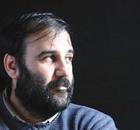
Eduardo Sartelli was born in 1963 in a small town in distant Argentine Patagonia. The son of a bricklayer and a school janitor, he studied history at the University of Buenos Aires. He has written dozens of scientific and popular articles and is the author of several books: La plaza es Nuestro (about the class struggle in his country), La sal de la tierra (a doctoral thesis on rural workers), Against the culture of work (a vindication of laziness) and La cajita unhappy (a Marxist analysis of the contemporary world). As part of its intellectual commitment, it has built the Center for Studies and Research in Social Sciences, which brings together more than forty researchers and publishes the publications Razón y Revolución and El Aromo, as well as science, art and literature books. He has also carried out intense union and political work within the revolutionary left in his country. He is currently a university professor and directs an adult school in poor neighborhoods, while preparing the second and third parts of the saga of La cajita, raising his room and (in his words) wild four-year-old son, writing when he can a vampire novel and tries to earn the love of his (again, in his own words) as beautiful as intelligent companion.




